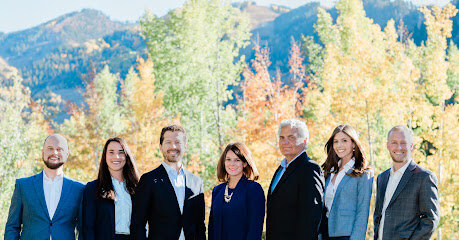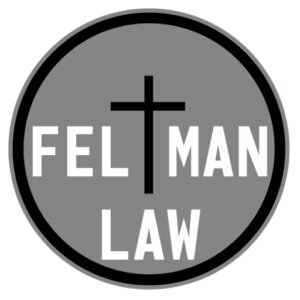Best Divorce & Separation Lawyers in Colorado
Share your needs with us, get contacted by law firms.
Free. Takes 2 min.
Free Guide to Hiring a Family Lawyer
Or refine your search by selecting a city:
List of the best lawyers in Colorado, United States
About Divorce & Separation Law in Colorado, United States
Divorce and separation law in Colorado governs the process by which married couples legally end their relationship or separate. Colorado is a "no-fault" divorce state, which means that a spouse does not need to prove wrongdoing like adultery or abandonment to obtain a divorce. Instead, one or both parties simply need to state that the marriage is "irretrievably broken." Legal separation is also recognized, allowing couples to address issues like property division, child custody, and support without officially ending the marriage. Understanding your rights and obligations under Colorado law is essential if you are considering either divorce or separation.
Why You May Need a Lawyer
Navigating divorce or separation can be emotionally and legally complex. Many individuals benefit from legal counsel in situations such as:
- Disputes over child custody or visitation
- Negotiating child or spousal support (alimony)
- Dividing shared real estate, retirement accounts, or business interests
- Cases involving domestic violence or abuse
- When one spouse is hiding assets or income
- If you or your spouse disagree about how property should be divided
- When preparing or contesting prenuptial or postnuptial agreements
- Situations where one party is not a United States citizen
Local Laws Overview
Colorado has several key laws and procedures unique to the state regarding divorce and separation:
- No-fault divorce: Neither spouse has to prove fault for divorce to be granted.
- Residency requirement: At least one spouse must be a Colorado resident for 91 days before filing for divorce or legal separation.
- Property division: Colorado uses an "equitable distribution" system. Property and debts acquired during the marriage are divided fairly, though not always equally.
- Child custody (“parental responsibilities”): Decisions are made in the best interests of the child, considering factors like the child’s wishes, parenting history, and the parents’ ability to cooperate.
- Child support: Calculated based on Colorado's guidelines, considering both parents’ incomes and the needs of the child.
- Spousal maintenance (alimony): May be awarded depending on the length of the marriage, financial resources, and other factors.
- Mandatory waiting period: After filing, there is a minimum 91-day waiting period before a divorce can be finalized.
- Mediation: Courts may require couples to attend mediation to resolve issues before a case goes to trial.
- Same-sex divorce: Same laws and procedures apply to all married couples, regardless of gender.
Frequently Asked Questions
Is Colorado a no-fault divorce state?
Yes, Colorado is a no-fault divorce state. You only need to state that the marriage is irretrievably broken to file for divorce. No evidence of wrongdoing is required.
How long do I have to live in Colorado before I can file for divorce?
At least one spouse must have lived in Colorado for at least 91 days before filing for divorce or legal separation.
What is the difference between divorce and legal separation?
Divorce legally ends a marriage, allowing both parties to remarry. Legal separation lets couples address property, custody, and support issues while staying legally married.
How is property divided in a Colorado divorce?
Colorado follows equitable distribution laws, meaning marital property is divided fairly based on several factors, not necessarily equally.
How is child custody determined?
Colorado courts decide custody (referred to as parental responsibilities) based on the best interests of the child, considering multiple factors including the wishes of the parents and child, the child's relationship with each parent, and the ability of the parents to cooperate.
Will I have to pay or receive alimony?
Spousal maintenance, commonly called alimony, may be awarded based on factors like the length of the marriage, the financial resources of each spouse, and their contributions during marriage.
How long does it take to get divorced in Colorado?
There is a mandatory 91-day waiting period after the divorce petition is served, but complex cases may take longer to resolve, especially if they go to trial.
Do we have to go to court?
Not always. If you and your spouse agree on all terms, you may be able to finalize your divorce without a trial. Otherwise, the court will resolve contested issues.
What if my spouse does not agree to the divorce?
In Colorado, if one spouse believes the marriage is irretrievably broken, the divorce will proceed even if the other spouse disagrees.
Can I change my name during the divorce?
Yes, you can request to restore a prior name as part of your divorce proceedings.
Additional Resources
If you are seeking more information or assistance regarding divorce and separation in Colorado, the following resources may be helpful:
- Colorado Judicial Branch: Provides official forms, self-help information, and guidance for divorce and separation cases.
- Colorado Legal Services: Offers free or low-cost legal support for qualifying individuals.
- Colorado Bar Association: Can help you locate an experienced family lawyer in your area.
- Local courthouses and Family Court Facilitators: Often provide mediation services and procedural guidance.
- Domestic violence shelters and support organizations: Offer help for individuals facing abuse in intimate relationships.
Next Steps
If you are considering divorce or legal separation in Colorado, here are some recommended steps:
- Gather important documents, such as marriage certificates, financial records, and property deeds.
- Consider your goals related to property, custody, and financial support.
- Contact a licensed Colorado family law attorney for a consultation to discuss your specific situation and options.
- Visit the Colorado Judicial Branch website for downloadable forms, instructions, and more detailed information.
- If safety is a concern, connect with a domestic violence support organization immediately.
- Engage in mediation or negotiation if appropriate, as many cases can be settled without court intervention.
- File the appropriate paperwork once a plan of action is established and follow all court procedures closely.
Lawzana helps you find the best lawyers and law firms in Colorado through a curated and pre-screened list of qualified legal professionals. Our platform offers rankings and detailed profiles of attorneys and law firms, allowing you to compare based on practice areas, including Divorce & Separation, experience, and client feedback.
Each profile includes a description of the firm's areas of practice, client reviews, team members and partners, year of establishment, spoken languages, office locations, contact information, social media presence, and any published articles or resources. Most firms on our platform speak English and are experienced in both local and international legal matters.
Get a quote from top-rated law firms in Colorado, United States — quickly, securely, and without unnecessary hassle.
Disclaimer:
The information provided on this page is for general informational purposes only and does not constitute legal advice. While we strive to ensure the accuracy and relevance of the content, legal information may change over time, and interpretations of the law can vary. You should always consult with a qualified legal professional for advice specific to your situation.
We disclaim all liability for actions taken or not taken based on the content of this page. If you believe any information is incorrect or outdated, please contact us, and we will review and update it where appropriate.
Browse divorce & separation law firms by city in Colorado
Refine your search by selecting a city.












